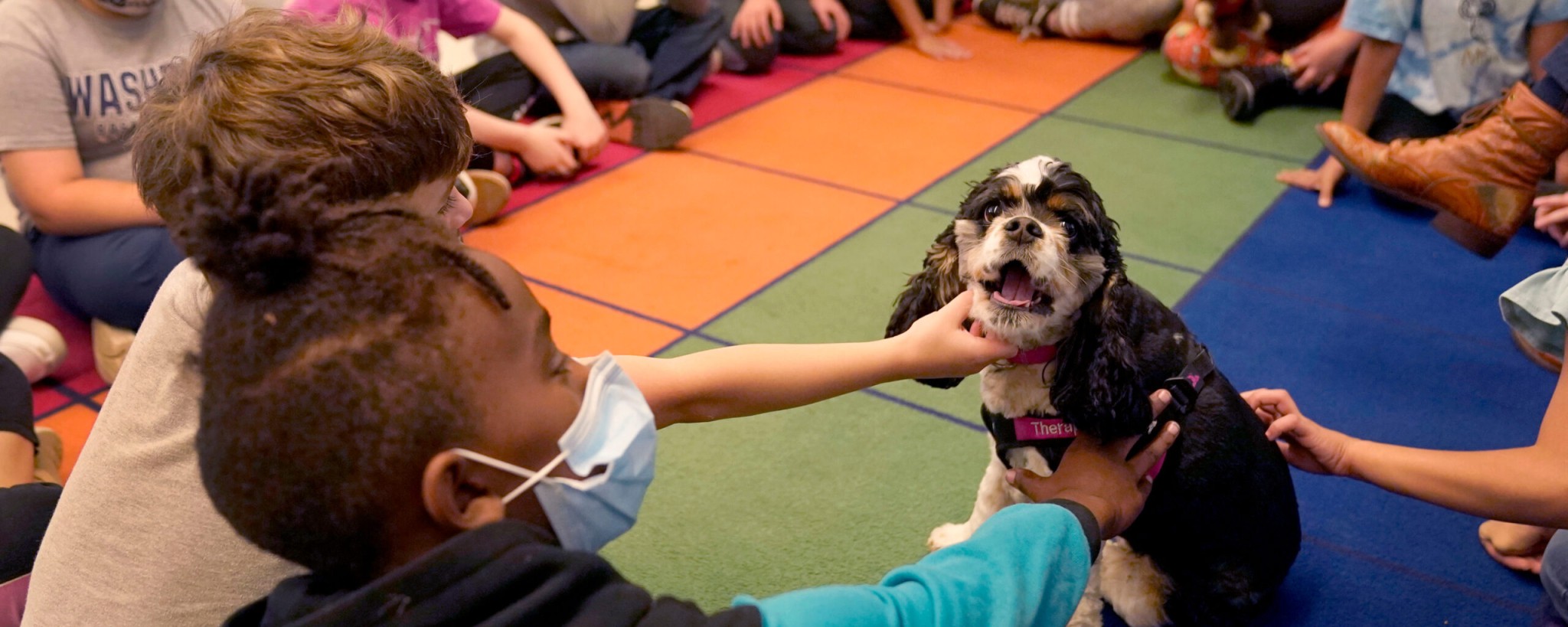The fears, anxieties, and confusion that gripped us during the worst of the global COVID-19 crisis are gradually lifting and exposing an altered world. Therapy culture, so starkly revealed twenty years ago by British sociologist Frank Furedi, is now dominant and more firmly entrenched in Canada’s K-12 schools. Therapy talk is rife in most domains of Canadian life, but particularly in education where “student well-being” has superseded “academics” in curricula, education magazines, pre-service training, and staff meeting sessions.
Clothed in various guises, such as “Social and Emotional Learning” (SEL), ”therapeutic education,” or “trauma-informed practice,” it is ascendant in our provincial systems. Widely viewed as “an unambiguously positive development,” the therapeutic ethos and imperative has, according to American policy analyst Robert Pondiscio, extended the reach of education into students’ lives and expanded the role of teachers. While it’s recognized and openly debated in the United Kingdom and the United States, the phenomenon remains largely unexamined in Canada’s disaggregated provincial school systems.
The therapeutic turn
Provincial ministries of education, school leaders, and most parent advocacy groups have been subsumed in the spread of what British education professors Kathryn Ecclestone and Dennis Hayes termed “therapeutic education.” Published in 2009 and republished a decade later, their book attracted little attention here in North America. When immersed in a culture, it can be difficult to see it whole or grasp its immense influence. That is perhaps why it was, rather predictably, mostly ignored or simply dismissed in Canadian education ministries and faculties of education.
After two decades of governmental focus on raising academic standards, since the arrival of the Program of International Student Assessment (PISA) and so-called high-stakes testing, the appeal of a therapeutic turn for school leaders and educators at all levels is understandable. Public support for testing and accountability, however, remains fairly strong, which explains why Canadian curricular and pedagogical reforms aimed at advancing SEL are spun by advocacy groups like Ontario’s People for Education as “broadening the basis” of curriculum and assessment as a new mutation of core academic competencies.
While therapeutic education’s roots go back decades, Ecclestone and Hayes’s pioneering 2009 book was the first to precisely describe how popular psychology and “medicalized thinking” have gradually taken over classroom practice along with emotionalism. In most provinces and regional school districts, emotional well-being, emotional literacy, and emotional competency have made significant inroads, dislodging academic skills, knowledge, and cognitive learning as the primary outcomes of the education system.
The Canadian variant of therapeutic education is somewhat distinct from iterations in the United States. Character education and Christian religious values hold far more sway in American state systems, and leading education conservatives such as Chester Finn and Rick Hess see moral education as an essential component of the American educational tradition from the founding of the Republic and the formative days of Horace Mann onward. Up here in Anglo Canada, the public education culture is far more receptive to collective approaches aimed at advancing the public good through well-intended psychological strategies and practices.
Trauma-informed education
Torn from its moral and religious foundations, Canadian public education iterations of SEL are totally subsumed by the secular therapeutic ethos and self-absorbed pursuit of personal identities. The exponential growth of therapy culture has proceeded almost unimpeded in Canada’s schools, as measured by the proliferation of child psychologists, mental health counselling, and mindfulness curriculum programs. One of the great ironies of this recent phenomenon is that the purveyors of therapeutic education, ensconced in public health units and education faculties, arrive promising uplift, quietude, and empowerment, but tend to “cultivate vulnerability” and can foster feelings associated with what psychologists term a “diminished self.”

One of the most trenchant critiques of contemporary social trends, Jonathan Haidt and Greg Lukianoff’s 2019 book The Coddling of the American Mind tackled the contradictions inherent in education at all levels from preschool to the universities. What the authors clearly identified was the “coddling of the mind” and the desire to weave a protective web of “safetyism” around today’s generation of students. Fierce critics of the rise of therapy culture in education like Furedi go much further, claiming that therapy culture draws sustenance from trauma-informed approaches, implants a culture of fear, and gives credence to claims that most students are vulnerable and need protection.
Overdiagnosis of children and teens with broadly-defined mental health issues may well be an unrecognized problem. More than two-thirds of American students, according to Heath and Human Services survey data, reportedly suffer one traumatic event before their sixteenth birthday. In the case of Canada, leading experts like Rosalynn M. Record-Lemon and Maria J. Buchanan, routinely claim that statistics show 76.1 percent of Canadians will experience at least one traumatic event in their lifetime. Many and perhaps most children and adults, before COVID-19, were said to be facing psychological trauma and life situations that overwhelm the individual’s capacity to cope. Maltreatment, family violence, bullying, natural disasters, illnesses, and personal loss were linked to “pervasive psychological, physical and developments impacts.” All of this is commonly used as a rationale for the widespread adoption of Trauma-Informed Practice (TIP) in publicly-funded schools.
Reframing the education debate
Education is devolving into social therapy for children and teens. For that reason, the tired old debate pitting education progressivism against traditional teaching is losing its resonance. It’s all devolved into whether the purpose of schooling is to cultivate rather than transmit fundamental skills, including core competencies, critical thinking, creativity, and communication. Most teachers tend to oscillate between the two approaches, confronting everyday classroom realities borrowing from one approach or the other looking for, then settling upon, something that works for them and their students.
Over the past decade, and particularly since the great pandemic disruption, therapeutic education has emerged in ascendancy. It may be more fruitful, as British educator David Didau once observed, to reframe the whole education debate: Give the conventional progressive vs. traditional battle a rest because it’s now more of a contest between “therapeutic” and “academic” education.
The pandemic education crisis was accompanied by a profound catharsis transforming school systems, over two school years, for months on end, into protective spaces adhering to COVID-19 public health directives, and focused on providing a semblance of rough equity and support for students from disadvantaged or marginalized communities. In Ontario, it’s even spawned a new educational administration venture into “trauma-sensitive school leadership.”
As families and schools gradually recover from “learning loss” and the collateral psycho-social effects, the almost exclusive emphasis on SEL and trauma-informed practice will subside. When we clear our heads, policy-makers, school leaders, and educators will be more favourably disposed to putting therapeutic practice back in its rightful place: as a support rather than a substitute for meaningful, purposeful, and effective teaching and learning.
Recommended for You

Christopher Snook: Is Canada sleepwalking into dystopia?

Ginny Roth: How vacant liberal nationalism left Canada worse off than George Grant even imagined

Michael Kaumeyer: Polite decline: Canada’s aversion to being our best is holding us back

Howard Anglin: Lament for a Lament




